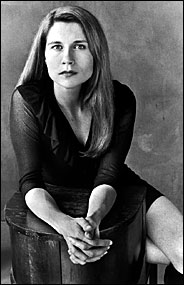A Day in the Goddam Life (with apologies to Lenin and all other despicable leftists who object to modifiers like “goddam”), a new feature that will run periodically on Return of the Reluctant, follows local residents through their daily routines. But rather than dwell upon the obvious success stories, it is this publication’s hope to profile those who do not have the security blanket of an expendable income. The first installment is about Horace Krum, an aspiring writer living in poverty. Mr. Krum doesn’t enjoy being used as a yardstick, and we suspect that this is one of many reasons why he’s been denied his fame and fortune. That’s exactly why this profile is “about Horace Krum,” the same way that the average penis pump owner’s John Thomas is “about two inches” or a typical shitstorm from the Weinstein brothers is “about 7.4 on the Richter scale.”
For eight years, Krum hasn’t received a single notice from the public. He spent much of that time ingratiating himself with the affluent. He courted rich heiresses. He gardened several homes, often pruning the shears with his shirt off. Krum, however, didn’t quite have the upper body development that bored rich ladies are bound to notice. So he tried his hand at love letters. Alas, poor Krum was terrible here too.
Eight years of toiling for the attentions of some noble benefactress and eight years of writing stories. For eight years, Krum tried to be noticed. He received boiler plate letter after boiler plate letter: “Dear Ms. Krum: Thank you for submitting your story. Unfortunately, it does not suit our magazine’s needs at the present time. Please don’t send anything more to us. Ever. Frankly, you suck. Cordially, Tiny Tim Tender, Production Intern.”
Which is why our intrepid reporter followed Horace Krum for a day. What’s it like to live the life of a failed writer?
8:30 a.m. We meet in Horace Krum’s studio apartment, which he shares with his roommate Biff. The apartment’s located in a tenement. Krum sleeps in a closet, which allows him to save about $100 a month on rent. Biff, who introduces himself as a gentleman fond of “personal space,” tells us “to get the hell out.” Krum collects two suitcases: one containing his typewriter, the other containing things to work on.
Krum tells me that he’s trying to whip himself into shape. He tells me that it’s important for all writers to have a physique honed by Nautilus, because the book world has become increasingly reliant upon “sexy, fuckable authors” that they can send out on book tours. Unfortunately, Krum can’t afford a gym membership. So we end up jogging together in Krum’s neighborhood. Our tennis shoes crunch down on crack vials. We nearly run into a vagrant’s shopping cart taking up the whole of the sidewalk. And, about five minutes into the exercise, we are both mugged.
This is particularly unfortunate for Krum, because he had $200 in his wallet. This was much needed cash. Krum had sold his beloved collection of first edition O. Henrys, so that he could make this month’s rent. A hard decision, but he needed to keep a roof over his head. But Krum remains optimistic. He tells me he’s sent four stories out this week. One of his stories, “They Had Brunch at Denny’s,” is 6,000 words. Krum has high hopes for this one. He’s submitted it to Waverley Wonders, a small literary magazine that pays 4 cents a word. That’s $240 before quarterly taxes.
10:30 a.m. We return to Krum’s apartment. Biff is gone. He’s headed off to his job as a butcher. I notice that the wallpaper is peeling. Krum quickly flattens down the wallpaper. He shows me a thick file filled with rejection notices, all of them from this year. Most of them are bad photocopies. Some include marked up copies of Krum’s stories. I find one which reads, “Unbelievable! Have you ever slept with a woman?” “And that was really odd,” Krum tells me, “because that was a coming-of-age tale involving two boys.”
I point out to Krum that Waverley Wonders hasn’t published a story longer than 2,000 words in its entire run. “Oh, they will,” winks Krum. “Just you wait.”
11:00 a.m. Krum usually writes between 11:00 a.m. and 5:00 p.m. Except today, because he knows that I plan on buying him lunch. He needs to be done before Biff comes home. Aside from short stories and essays, Krum’s also “messing with a romance novel, partly historical, set in Larry Ellison’s home.” He writes his stories on a typewriter because he cannot afford a computer. He steals paper from a local Kinko’s. This is because he has a friend who works there, who hates the job, and wants to “stick it to the man.”
“How often do you eat?” I ask. Krum opens two doors of a cupboard. One of the doors falls off its hinges. Inside the cupboard are endless packages of Top Ramen. He gets these at Costco.
Krum has been lucky enough to be invited to a few poetry readings. And he attends these because he can count on free hors d’oeurves, which provide additional sustenance. This diet hasn’t boded well for Krum’s digestive tract. But Krum tells me he’s kept up his energy, thanks to the additional additives in the tap water.
12:00 p.m. I take Krum to Chevy’s, largely because Krum’s keen on the calories he can get from the endless chips. He orders three margaritas and eats four enchiladas. He begins to slur his words and bemoans “that muddafugga Biff.” He then declares himself a genius and tells me that New York will never understand. I point out that he’s still writing and sending his stories out regularly. He then apologizes to me for being an ass. He hasn’t been able to afford the luxury of liquor for a long time.
1:00 p.m. Back at Krum’s apartment, I ask Krum if he has a girlfriend. He dodges the question, pointing out that he used to enjoy cooking, back in the days that he had a day job. “I haven’t cooked anything in years,” he laughs. “Haven’t been able to afford even the basic staples. Man, can you imagine the kind of food that Larry Ellison could afford?”
2:15 p.m. Krum kicks me out of his apartment. It must be the margaritas, but I think it also has something to do with cutting into Krum’s writing time. I walk away with growing respect for Krum, a man with almost no resources trying to crack a cruel industry. Perhaps someday, the world will appreciate a man like Horace Krum. That is, if he doesn’t die of starvation first.
 PHOTO DESCRIPTION: Ms. Haigh doesn’t smile. She wears an austere “we mean business” look on the safe side of the nihilism fence, provenance enough for the Barnes & Noble crowd. She wears a black dress that reveals a bit of leg. The bench has been positioned so that we don’t really see it. In fact, factoring in the cleavage pushed forward into an expanse of black, the overall effect appears to be an author ready to mount the table. And then there are the positions of her hands. Her right fingers fold over to draw our eye to her leg. Curiously, her knee has been cut off.
PHOTO DESCRIPTION: Ms. Haigh doesn’t smile. She wears an austere “we mean business” look on the safe side of the nihilism fence, provenance enough for the Barnes & Noble crowd. She wears a black dress that reveals a bit of leg. The bench has been positioned so that we don’t really see it. In fact, factoring in the cleavage pushed forward into an expanse of black, the overall effect appears to be an author ready to mount the table. And then there are the positions of her hands. Her right fingers fold over to draw our eye to her leg. Curiously, her knee has been cut off.  Dale Peck isn’t
Dale Peck isn’t